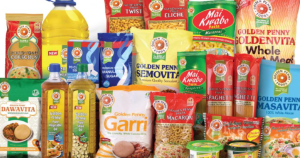Fat and Oil; what are they? They are one and same. In the school of chemistry both are known and called lipids, they share a common chemical structure and similar properties. Both belong to a broad group of organic compounds that helps the body store energy, and act as structural components of cell membranes that ensures nutrients are transported to the cell and toxic substances are transported out of the cells. In a nutshell, the body is vulnerable to all kinds of health issues without the fatty acids.
Fats and oils are important part of our diets. Apart from being a source of essential fatty acids for the body, they provide distinctive flavor to food.
Any difference between fat and oil? Yes, but just thin lines of differences. In terms of texture, oil is viscous liquid at room temperature, while fat remains solid at room temperature. Oil is plants derivative while most fats are sourced from animals.
While fats are mainly composed of saturated fatty acids, oils are mainly unsaturated fat that are further broken to monounsaturated and polyunsaturated. Experts say both fat and oil are made up of carbon(c), hydrogen (H) and oxygen (O). They are both macronutrients that are involved in immunity. The main difference between fats and oils, according to experts, is the degree of saturation.
American Heart Association also makes a clear distinction between saturated fat (fat) and unsaturated fat (oil). According to the association, less than 7% of daily caloric intake should consist of saturated fat. Adding that for a normal and healthy person’s daily saturated fat should be 10% of daily caloric intake. However, there are no limit or for unsaturated fats.
The position of the American Heart Association suggests that high amount of saturated fats can be harmful to health, while unsaturated fats are being associated with health benefits
In the Food Safety Focus (110th Issue, September 2015) under Food Safety Platform, Arthur YAU, the scientific officer, Centre for Food Safety analyzed painstaking steps that the oil and fat producers must take to produce safe oil and fat.
According to YAU, during the processing of oils, manufacturers must extract crude oil from the raw materials through physical means (e.g. pressing), chemical means (e.g. extraction by solvents) or a combination of both methods. Many of these must be further processed so that the desired quality and properties can be obtained in the product. Undesirable and harmful substances in the raw materials, if present, can also be removed during processing.
To obtain animal fats, Yau said, fatty parts of the animals are melted in hot water or steam. The melted fat rises on top of the water and is removed with utmost care in order to leave out impurities.
The interpretation of YAU’s presentation was that not all fats and oils are safe for human consumption. So, what guaranty do you have that the oil and fat you are about to consume, or you are consuming is safe for your wellbeing? Food nutritionists and other experts suggest that you consume oil and fat procured from certified micronutrients fortification compliant sources like Golden Penny brands of oil and fat.

In the next two issues of Eat Healthy Live Healthy, we will cover the role of Golden Penny’s fat and oil brands in food quality, safety, nutrition and health. Join us next week for another refreshing edition.

Content Powered by: Ejide Ayinde Enterprises
Enquiries: +234 8033316459
Source: Dare Agbeluyi, Chief Publisher.
Publisher’s Note:
- Leave your comments in the comments box below and share the post
- Send your health- related articles, stories, tips to compack2006@yahoo.co.ukfor free publication
- Like and share our Facebook page: @citizencomfortng
I


